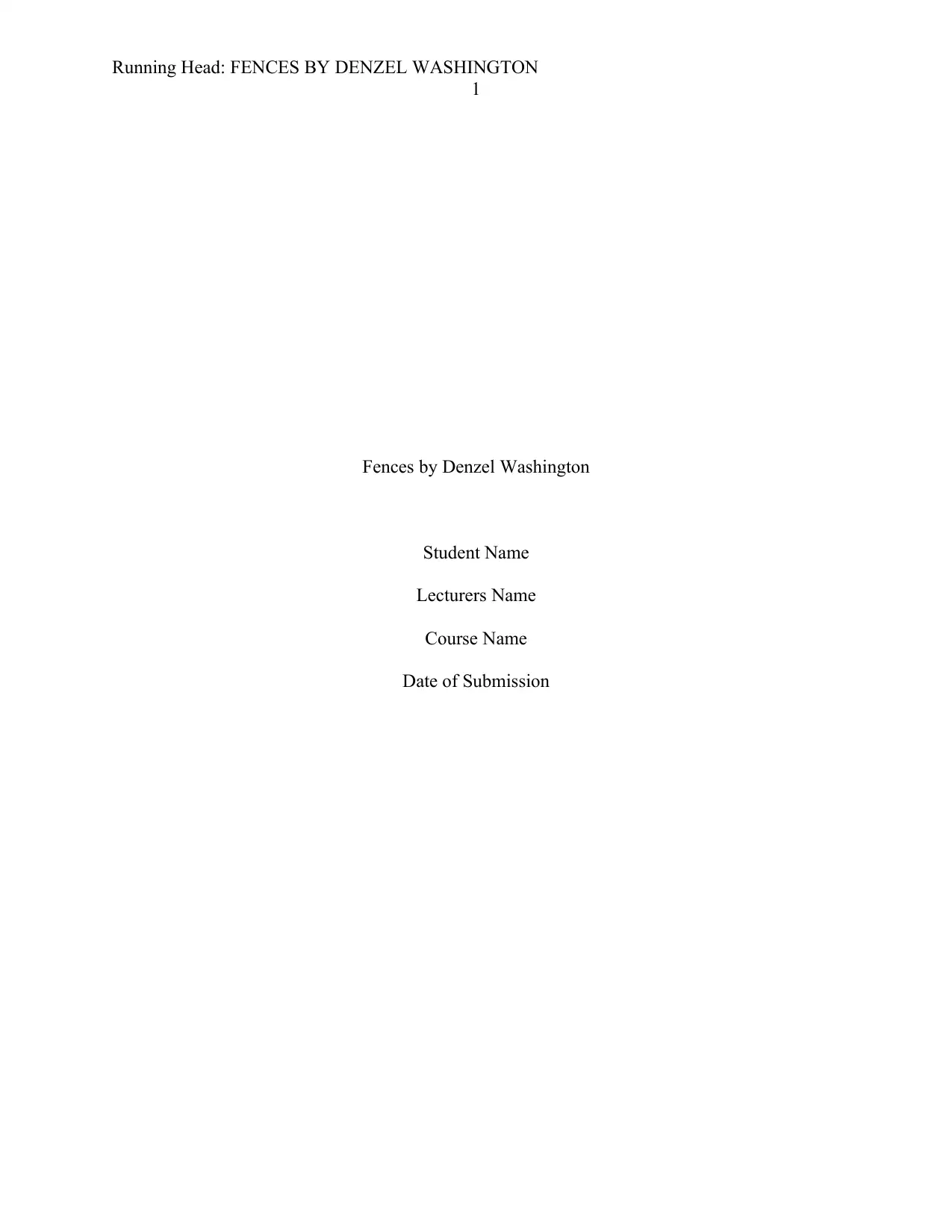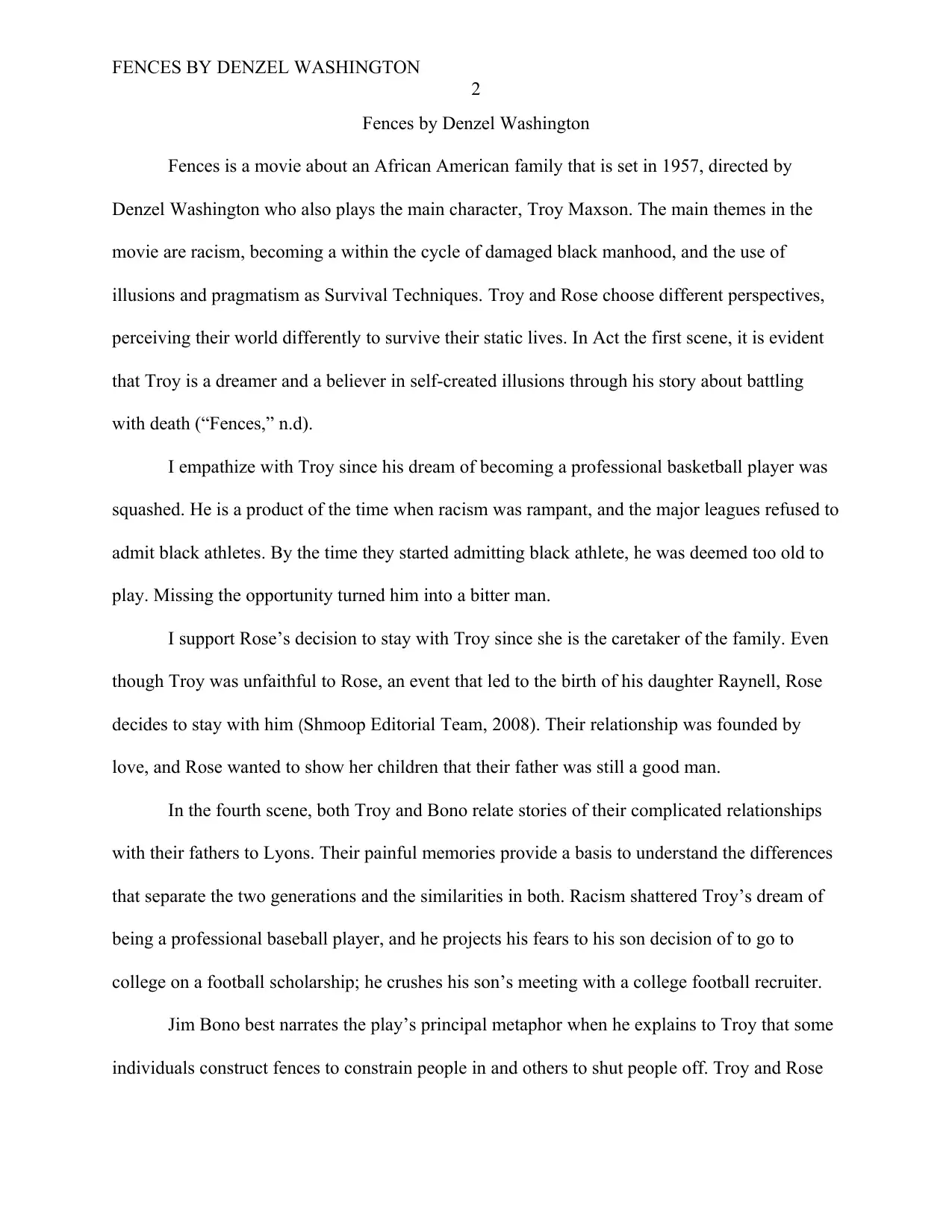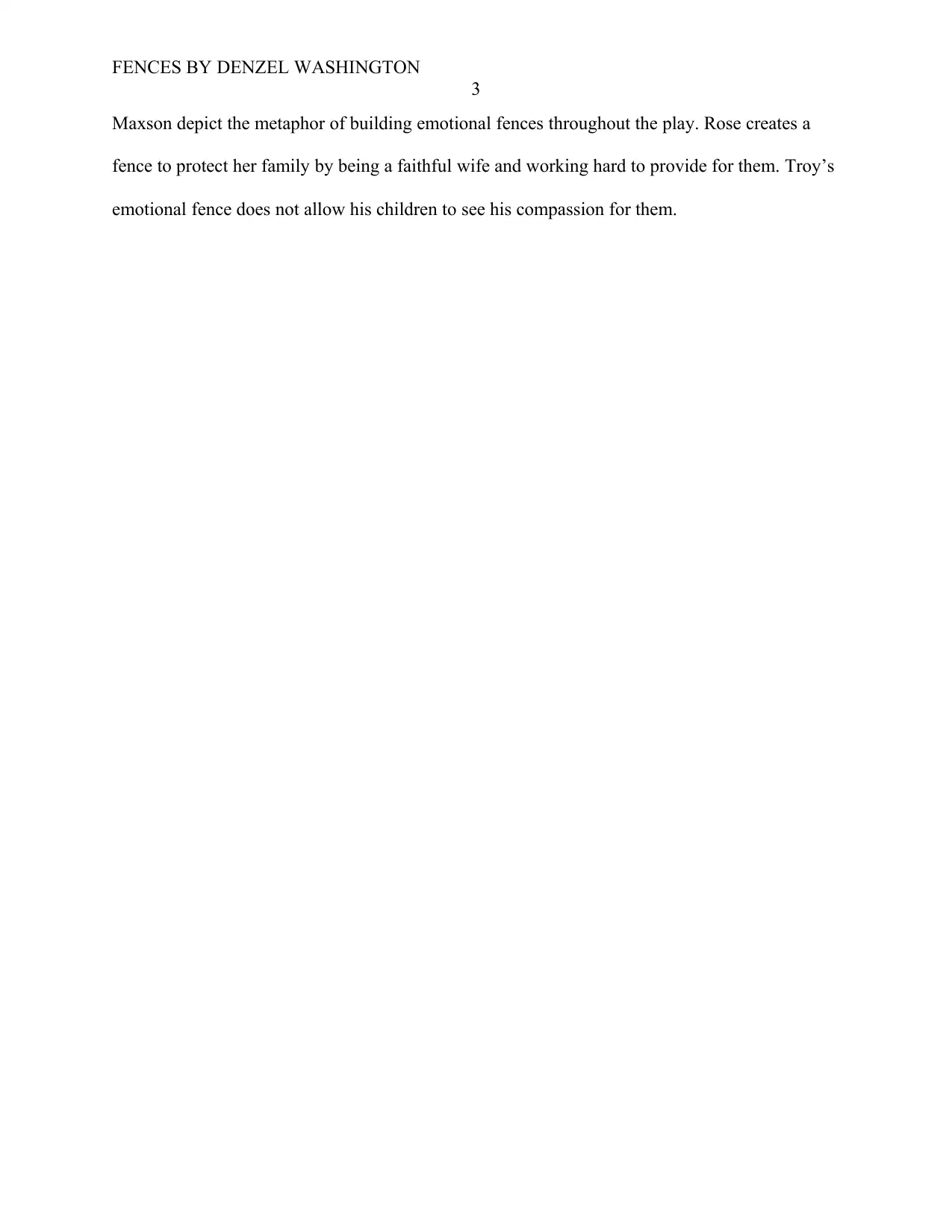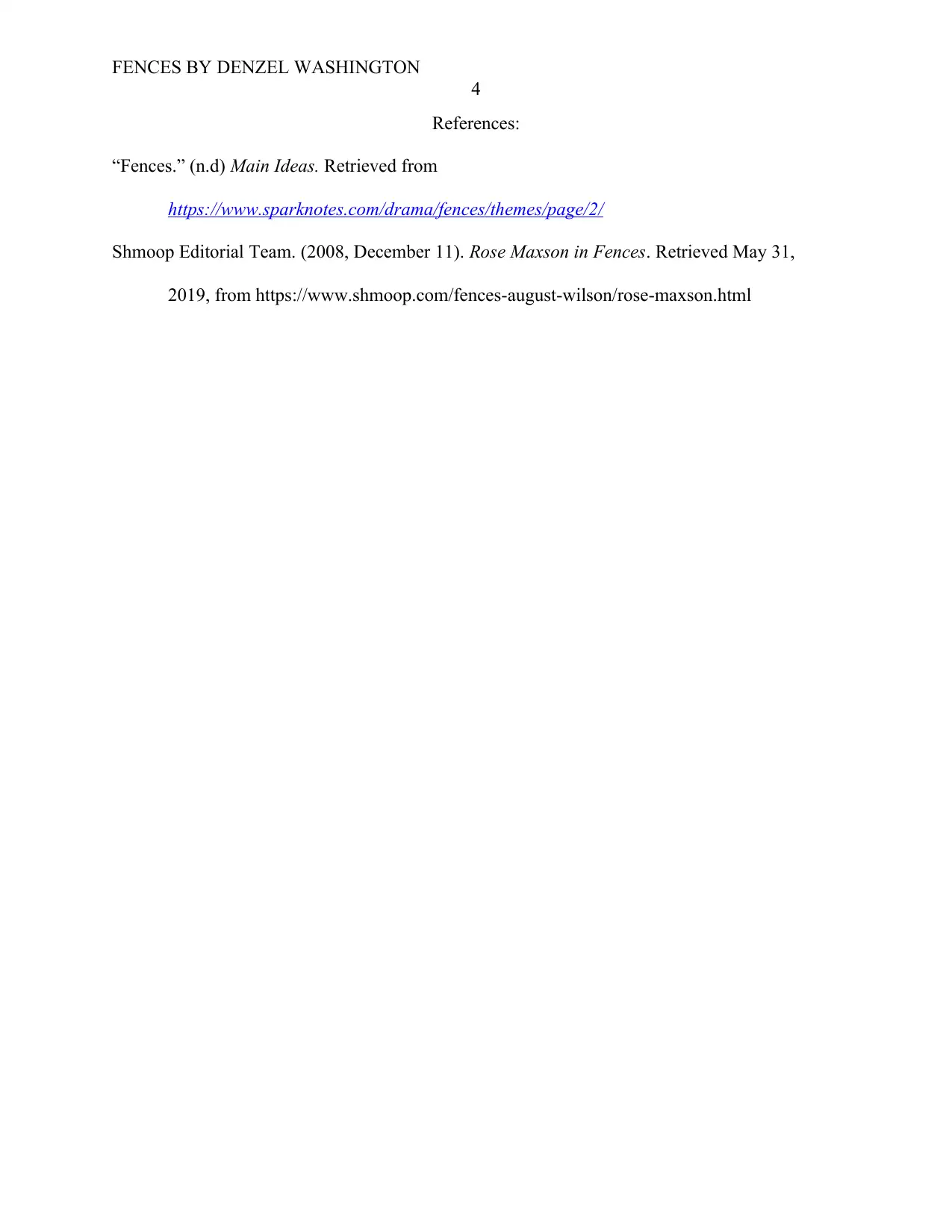An Examination of Key Themes in Denzel Washington's 'Fences'
VerifiedAdded on 2023/03/30
|4
|436
|281
Essay
AI Summary
This essay analyzes Denzel Washington's film 'Fences,' focusing on the themes of racism, the cycle of damaged black manhood, and the use of illusions and pragmatism as survival techniques. It discusses how Troy Maxson's thwarted dream of becoming a professional baseball player due to racism shaped his bitterness and influenced his relationships, particularly with his son. The essay also examines Rose's decision to stay with Troy despite his infidelity, highlighting her role as the family's caretaker. Furthermore, it explores the metaphor of building emotional fences, with Rose creating a fence to protect her family through faithfulness and hard work, while Troy's emotional fence prevents him from expressing compassion. The analysis uses specific scenes and character interactions to illustrate these themes and metaphors, providing a comprehensive understanding of the film's underlying messages.
1 out of 4








![[object Object]](/_next/static/media/star-bottom.7253800d.svg)